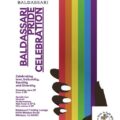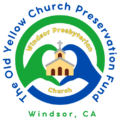A sermon on Luke 12: 32-40
This week I practiced understanding metaphors in the Bible. Jesus often speaks in parables, and the prophets also told stories to teach the people about God. We see metaphors of what God is like in the various Psalms and other “wisdom” literature. Even in what we call the “historical” sections of the Bible, we know God is speaking in metaphor through Scripture. The stories and words used to describe something are symbolic rather than literal. We are not sheep, even if Jesus says, “Do not be afraid little flock” to start this lesson.
The problem with Biblical metaphors if that often they refer to symbols of things happening in the ancient world that mean very little to us right now – so how can we interpret them? We can leave it to great writers like Eugene Petersen, who wrote the pretty commonly-used The Message interpretation of the Bible. For that line about the little flock, he translates it, “Don’t be afraid of missing out. You’re my dearest friends!” – few of us get the notion of sheep; I don’t think any of us are shepherds, but friends, we might have a better way of understanding. However, that translation does leave a little of the meaning out – sheep are a little less independent than friends. I don’t have to care about friends in quite the same way I have to care for my sheep. I wondered if maybe “Don’t be afraid my dearest children” or “my dearest family.” It might change depending on our professions – a nurse might understand patients better; a teacher her students. Is there a metaphor that shows God’s love, care and protection for you that you might substitute there?
Sheep is one of the easiest metaphors. To see how we might think about some of the more difficult ones, check out the full sermon here.










